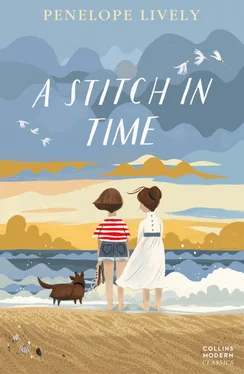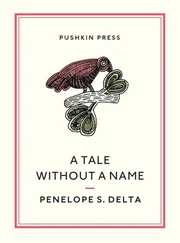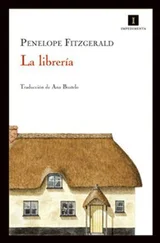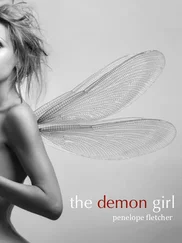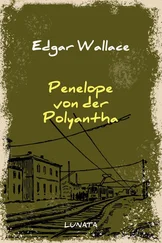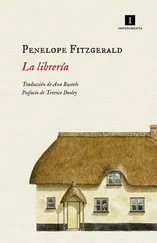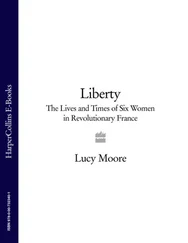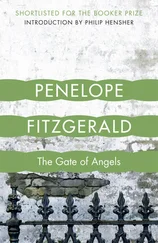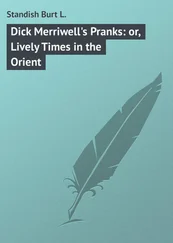That’s mine, she thought, that’s the one I don’t know the name of … And, laying her fossil beside the drawing, she saw its shadowy shape and patterning confirmed and defined in the tidy pen-strokes. Stomechinus bigranularis , said the writing alongside it,“an extinct form of sea-urchin. Found below the west cliff, 3 August 1865.”
And it’s August now, thought Maria, a different August … And with the book still open on the table in front of her she sat looking out of the window and thinking about someone else (a girl, I’m somehow sure she was a girl …) who had held the same book just about a hundred years ago – no, more than that – and looked perhaps out of the same window maybe at the same shaggy lawn and gently heaving trees. Because, thought Maria, I suppose she lived here, since the book is here, and the fossils in the cabinet, which must have been hers … And, thinking about this, and stroking her fingers over the smooth, but so faintly ridged, surface of the piece of grey rock containing Stomechinus bigranularis , she heard the squeak and whine of that apparently non-existent swing again.
Into which agreeable private dream intruded – as such things inevitably do – the voice of her mother calling that it was time for tea. But we’ve only just had lunch, thought Maria, I’m sure we have, it’s not true at all that time is always the same, it simply isn’t, there are slow afternoons and ordinary afternoons and afternoons like this one that are so fast they hardly seem to have happened … She went downstairs two steps at a time, jumping the last four in one leap, and noticed that the rain had stopped. She would be able to go and climb that tree again after tea.
The tree seemed, half an hour later, like an old friend. She settled herself in her armchair curve where branch met trunk. The bark was warmly rough against her back, through her cotton T-shirt, and the leaves hissed and whispered around her conversationally. After a while she was joined by a pair of pigeons who settled in another part of the tree and moaned at each other along a branch.
The sun had come out now and it was a bright, sparkling evening after the rain. The children from the hotel erupted into the next-door garden with much screaming and began to play badminton at the net not far beyond her tree. She made herself even smaller and more silent than she had done before, and watched them intently. There were three girls a little younger than herself, several smaller fry, and an older boy, who she assessed at, also, around eleven. She realised suddenly that they were the family she had seen at the petrol pump, on the way to Lyme – at least, given their ages and the number of them, they seemed to be a mixture of two families. The boy, she noticed, was slightly bored with the others. He played quite good-naturedly with the younger ones for a while, and then had an argument with the girls which sent him off on his own, kicking moodily at the stones around the edge of the flower-bed. Then, something in her tree attracted her attention and to her considerable alarm he came over and stood directly underneath it, staring up into the leaves. Maria froze against the trunk. The pigeons cooed at each other in monotonous repetition.
She must have clenched herself so tightly in her efforts to keep still that all of a sudden her sandal slipped against the bark with a rasping noise, the pigeons lumbered noisily off with cries of alarm and lurched down into another tree, and the boy, turning his head in her direction, looked straight up at her. They stared at each other through the leaves.
“I knew you were there all the time,” said the boy. “I only pretended not to so I could watch the collared doves. What did you go and frighten them away for?”
“I didn’t mean to,” said Maria.
He was examining the tree with interest now. “That’s a good tree,” he said.“The ones in this garden are hopeless. Do you live in that house all the time?”
“No,” said Mara. She wanted, urgently, to share the tree with him, to invite him into it, but even as she started to do so the usual business happened, the process whereby she never, ever, in the end, said what she wanted to say, in case it was wrong, or the other person didn’t want to do the thing suggested anyway, or would just stop listening. “No,” she said.
“We came yesterday,” said the boy. “They have rotten food. Not enough. But there’s a colour telly, so I s’pose it’s not too bad.” He put his hands in the pockets of his jeans, turning. He was about to go away.
“How did you know they were collared doves?” said Maria desperately.
“What do you mean?”
“Not pigeons. I thought they were pigeons.”
“Obviously they were collared doves, weren’t they?” said the boy.“I mean, wood pigeons have a wing bar, don’t they? Anyway, the call’s different.” He was wandering off now.
“Goodbye,” said Maria, her voice coming out suddenly loud, which made her go pink. Fortunately the leaves hid her.
“’Bye,” said the boy.“See you …” he added casually. And then with a sudden whoop he was dashing over the grass to the rest of the children. Maria heard them shouting, “Martin … Come on, Martin.”
Some time later she slid down the trunk of the tree and went back into the house. It was very silent. In the kitchen the fridge hummed softly. A clock ticked. Otherwise there was not a sound except for the rustle from the drawing-room when her father turned over a page of the newspaper. Her parents adapted rapidly to the drawing-room. They sat on either side of the empty fireplace, in identical bulbous chairs, reading. Maria lay on her stomach on a darkly patterned rug, and read also. The cat arranged itself decoratively along the arm of a sofa and watched them.
“Lively holidays you people go in for,” it said.
“We’re a quiet family,” said Maria.
It flexed its claws against the material of the sofa and said,“Do anything stimulating today? Learn anything? Go anywhere? Have any interesting conversations?”
“I talked to quite a nice boy,” said Maria. “He’s about my age,” she added.
“Well, well,” said the cat,“we are coming on, aren’t we? I suppose he asked you to go over there and play.”
Maria did not reply.
“Well?” said the cat.
“Maria,” said Mrs Foster, looking up, “don’t mutter like that. And shoo that cat off the sofa, will you. It’s ruining the material with its claws.” After a moment she added, “You didn’t need to chase it right out of the room, poor thing.”
“It wanted to go out,” said Maria. “I think I’ll go to bed now.”
She had a bath in the bath with feet like animals’ claws. It was a particularly deep bath, so that once in it, lying down, you could not see out unless you sat up, and indeed, if as small as Maria, you were in danger of drowning unless you kept constantly on the alert. Even so, she found it satisfactory. The lavatory too was pleasing. It had a brown wooden seat and a wreath of roses around the china basin, an arrangement she could not remember having come across before. Nothing in this house, she realised, was new. Everything was battered by time and use. In her own house, and those of all her friends, these were things that had been bought last month, or last year. In this one, wood was scratched, paint tattered, materials worn and faded. People had been here before. Such, for instance, as the H.J.P. who had carved her initials on the table. And the person – child, girl? – who had made those drawings of fossils in the book from the library.
Going back to her room she realised also that this helpful, no-longer-here friend had told her the name of the one she had not been able to identify. Stomechinus bigranularis she wrote neatly on a piece of card. She arranged it with the rest of her small collection, got into bed and switched the light out.
Читать дальше
